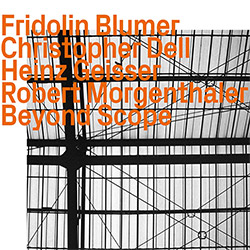
A seasoned quartet of trombonist Robert Morgenthaler, vibraphonist Christopher Dell, bassist Fridolin Blumer, and percussionist Heinz Geisser recorded in Zurich, exploring the essence of free improvisation through deep listening and spontaneous structure, where interplay and attentiveness replace convention, revealing the magic that happens in the space between the rules.
In Stock
Quantity in Basket: None
Log In to use our Wish List
Shipping Weight: 3.00 units
EU & UK Customers:
Discogs.com can handle your VAT payments
So please order through Discogs
Sample The Album:
Robert Morgenthaler-trombone
Christopher Dell-vibraphone
Fridolin Blumer-double bass
Heinz Geisser-percussion
Click an artist name above to see in-stock items for that artist.
UPC: 752156106227
Label: ezz-thetics by Hat Hut Records Ltd
Catalog ID: ezz-thetics 1062
Squidco Product Code: 36767
Format: CD
Condition: New
Released: 2025
Country: Switzerland
Packaging: Cardboard Gatefold
Recorded at WiM Studio, in Zurich, Switzerland, on October 5th, 6th, 7th and 8th, 2024, by Fridolin Blumer.
"Are there norms in free improvisation? A better question might be: are there rules? Free improvisation has been called many things—instant composing, non-idiomatic improv music, spontaneous composition, intuitive music—but no matter the name, the question of structure remains. To explore this, let’s look beyond music to another art form: film. Specifically, the 1998 cult classic The Big Lebowski, written and directed by Joel and Ethan Coen.
The film follows Jeffrey “The Dude” Lebowski, played by Jeff Bridges, who is mistaken for a millionaire of the same name. The mix-up draws him into a convoluted plot involving ransom money, a kidnapped trophy wife (who fakes her own abduction), and a cast of eccentric characters, from nihilists and pornographers to avant-garde artists and bowling fanatics. The Big Lebowski revels in absurdity, much like the world of free improvisation—often dismissed as chaotic or directionless.
At one point, a group of self-proclaimed nihilists tells The Dude, “We believe in nothing, Lebowski. Nothing.” Their philosophy echoes the common criticism that free improvisation lacks structure or purpose. But countering that perspective is The Dude’s friend Walter Sobchak, a Vietnam veteran played by John Goodman. Walter insists on precepts, famously snapping at an opponent during a bowling match: “Smokey, this is not ’Nam. This is bowling. There are rules.” His frustration could just as easily come from a jazz purist confronted with free improvisation. “Has the whole world gone crazy?” Walter exclaims. “Am I the only one around here who gives a shit about the rules?”
Though The Big Lebowski follows an unconventional sequence—it has amassed a cult following, inspired an annual festival (Lebowski Fest), and even spawned a faux religion (Dudeism). Its appeal lies in the way The Dude adapts to each new character and situation he encounters, shaping the Coens’ rhythm organically.
The Coens drew inspiration from another film that similarly defied traditional narrative rules: The Big Sleep (1946), directed by Howard Hawks and starring Humphrey Bogart and Lauren Bacall. Based on Raymond Chandler’s novel, the plot meanders through blackmail, murder, gangsters, and a pornography ring, all while indulging in cracking dialogue and simmering sexual tension. Like The Big Lebowski, the film ignores conventional storytelling norms, yet it remains a cinematic masterpiece.
This brings us back to free improvisation. Is it a lawless, nihilistic approach to music—an expression of “believing in nothing”? Or does it have a structure, an unspoken but understood framework? While jazz was built on improvising within melodies and chord changes, free improvisation discards those restraints. Yet, as Walter Sobchak insists, “This is jazz. There are rules.”
These rules were perhaps best articulated by British bandleader John Stevens, who helmed the Spontaneous Music Ensemble:
- If you can’t hear another musician, you’re playing too loud.
- If your music doesn’t regularly relate to what you’re hearing from others, why be in the group?
In other words, free improvisation isn’t an exercise in chaos; it’s an ongoing conversation. The best improvisers listen as much as they play. This philosophy is evident in the quartet Blumer–Dell–Geisser–Morgenthaler, a group born from two long-standing ensembles: Collective 4tet and Ensemble 5.
Collective 4tet was Geisser’s American-based ensemble, featuring bassist William Parker, pianist Mark Hennen, and either trombonist Jeff Hoyer or trumpeter Arthur Brooks. Meanwhile, Ensemble 5 was his European counterpart, built around bassist Fridolin Blumer, trombonist Robert Morgenthaler, and pianist Teto Staub. Over the years, Ensemble 5 welcomed guest musicians, including saxophonist Vincent Daoud, violinist Naoki Kita, and woodwind player Elliott Levin.
For The Human Factor (2024), Ensemble 5 added vibraphonist Christopher Dell. With Staub’s departure, Dell became a permanent member, forming the latest iteration of Geisser’s vision.
What makes this group compelling is not only their deep well of experience in improvised settings but their ability to embody Stevens’ guiding principles. Listening to this quartet interact affirms the idea that free improvisation is not about rejecting structure entirely—it’s about creating it moment by moment.
Each musician’s choices are informed by the others, their playing a reflection of deep attentiveness. The music ebbs and flows, a collective dialogue rather than individual monologues competing for dominance. If one listens closely, it’s possible to hear them listening—to sense their responsiveness in real time.
This is what distinguishes free improvisation from mere chaos. It isn’t about believing in nothing—it’s about believing in the shared act of creation. Like The Big Lebowski, it may not follow a traditional path, but that doesn’t mean it lacks depth, meaning, or impact.
Ultimately, the best free improvisation performances—and the best films—are those that refuse to be bound by rigid formulas yet still adhere to a fundamental sense of logic and cohesion. They remind us that while structure is important, the real magic happens in the space between the rules.
So yes, Smokey, just like bowling, there are rules in free improvisation."-Mark Corroto, from the liner notes
Artist Biographies
• Show Bio for Robert Morgenthaler "Robert Morgenthaler, Trombone studied at the Zurich Conservatory and at the Swiss Jazz School. Since 1979 he has been a lecturer at the HKB University of the Arts in Bern. Worldwide activities as a trombonist and composer. Tours in Europe, Africa, USA, South America, Asia and Russia. Various radio, TV and CD productions." ^ Hide Bio for Robert Morgenthaler • Show Bio for Christopher Dell "Prof. Dr. habil. Christopher Dell works as musician, theoretician and composer and in Berlin. Dell studied Philosophy, Music and Composition and holds a PhD in Organisation Psychology and a habilitation in cultural studies. Since 2000 Dell is head of the Institute for Improvisation Technology (ifit), Berlin. He currently holds a position as Professor for Urban Design Theory at the HafenCity University Hamburg. His teachings in Urban Desing Theory also include a.o. the University of Fine Arts Berlin, the Technical University Munich, Architectural Association London, University of the Witwatersrand Johannesburg and the Fine Arts Academy Arnhem. His Monographies include: "Prinzip Improvisation", Köln 2002, "Improvisations on Urbanity" Rotterdam 2009, "Tacit Urbanism", Rotterdam 2009, "Replaycity", Berlin 2011, "Die improvisierende Organisation", Bielefeld 2012, "Ware:Wohnen!", Berlin 2013 und "Das Urbane", Berin 2014. According to the "Reclam Jazzlexikon" Dell is one of Europe's leading vibraphonists. He has recorded numerous CD's and toured throughout Europe, Canada, China, USA, Japan, India, Africa and South America. His work as musician was honored with several awards e.g. the Downbeat Allstar Award, the Award of the "Deutsche Schallplattenkritik", Finalist European Jazzcompetition Brussels, Jazzprize of the City of Frankfurt, Scholarship "International Summerclasses for New Music" Darmstadt, the Compositionprize ERTA, the JazzArt-Award - Music of the 21st Century, the Musicprize of the City of Darmstadt, Finalist of the German Jazz Prize and a Grammy-Nomination." ^ Hide Bio for Christopher Dell • Show Bio for Fridolin Blumer "I am a bassist, improviser and interpreter and play music in the area between jazz, improvisation, new music and pop. I work internationally as a solo artist, with the band Ensemble 5 and as a sideman; an extensive discography on labels such as Leo Records, Hat Hut, Unit Records and TCB documents this work. My music is inspired by everyday life and I look for illiteral or musical answers to the questions: What are we and what depths of passion, feeling, perception and thought can we reach? My goal is to play clearly, concretely and directly. Without intention and in unconditional sincerity towards reality, in order to get closer to the point at which what is hidden behind concepts, ideologies, styles or common listening expectations becomes audible. In order to develop a personal and new music/musical language, I research the musical tradition, current musical trends, groove/time, sound and the way the bass is played in relation to this. At the age of eight I started playing the cello and discovered chamber music, and at the age of 15 I switched to the double bass and jazz. From 2003 to 2008 I studied at the Basel University of Music, Jazz Department, and since 2008 I have been working as a freelance bassist, stylistically independent." ^ Hide Bio for Fridolin Blumer • Show Bio for Heinz Geisser "Heinz Geisser is a Swiss jazz guitarist, drummer and percussionist, born August 16, 1961 in Zürich, Switzerland." ^ Hide Bio for Heinz Geisser
10/8/2025
Have a better biography or biography source? Please Contact Us so that we can update this biography.
10/8/2025
Have a better biography or biography source? Please Contact Us so that we can update this biography.
10/8/2025
Have a better biography or biography source? Please Contact Us so that we can update this biography.
10/8/2025
Have a better biography or biography source? Please Contact Us so that we can update this biography.
Track Listing:
1. Beyond Scope 13:32
2. Spectra 08:23
3. Source 06:52
4. Matrix 06:28
5. Canvas 05:15
6. Out There 14:12
Hat Art
Improvised Music
Free Improvisation
European Improvisation, Composition and Experimental Forms
Collective & Free Improvsation
Quartet Recordings
New in Improvised Music
Recent Releases and Best Sellers
Search for other titles on the label:
ezz-thetics by Hat Hut Records Ltd.


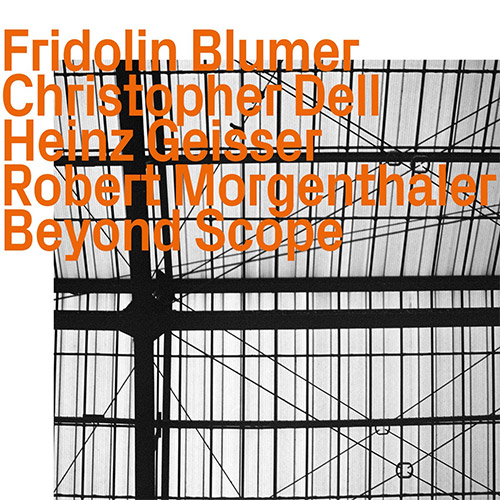


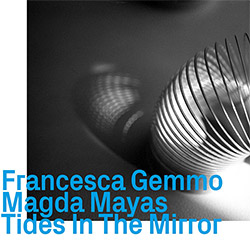


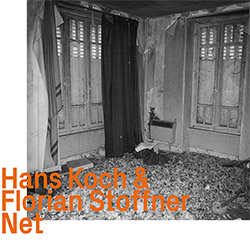



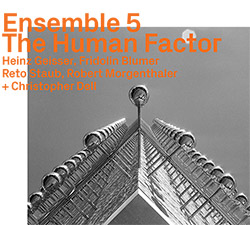


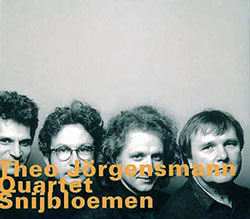

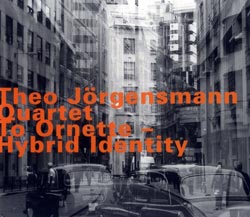
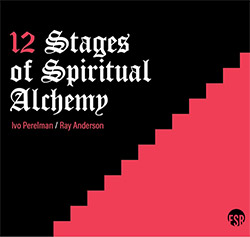
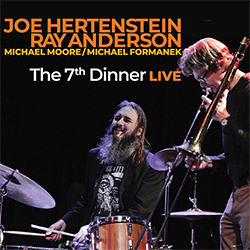
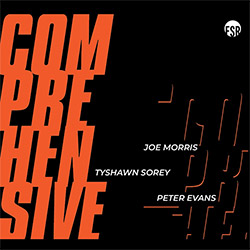
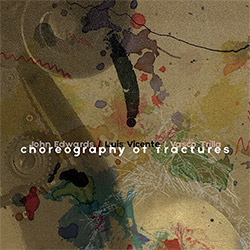


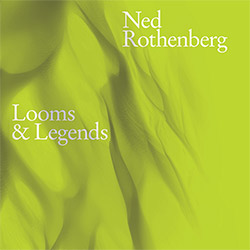

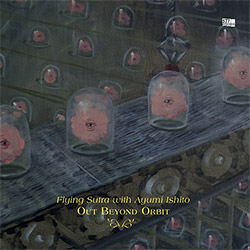






![Necks, The: Disquiet [3 CDs]](https://www.teuthida.com/productImages/misc4/36735.jpg)
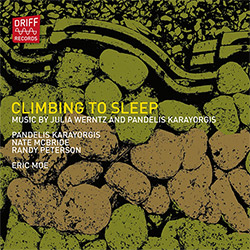
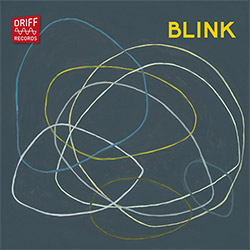


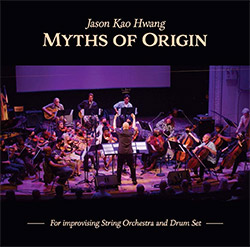

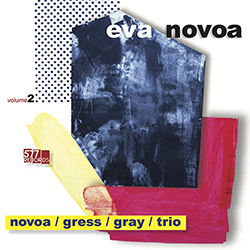

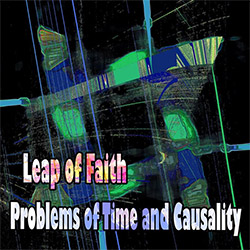
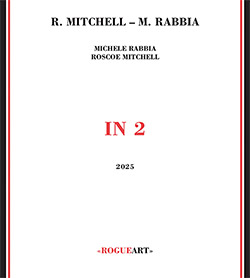
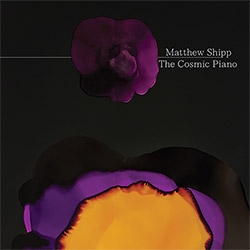

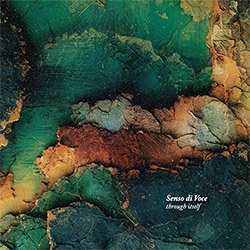
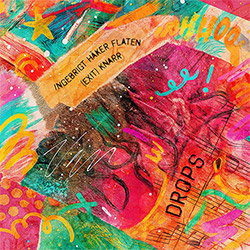
![Haker Flaten, Ingebrigt (Exit) Knarr: Drops [VINYL]](https://www.teuthida.com/productImages/misc4/36809.jpg)
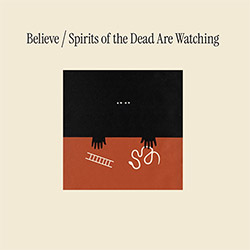


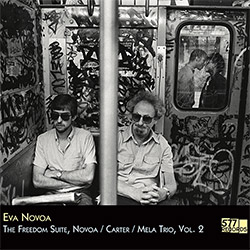
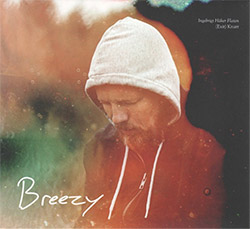
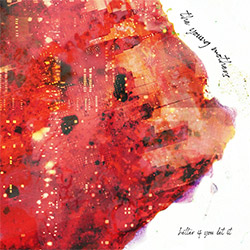
![Young Mothers, The (Haker-Flaten / Rosaly / Taylor / Jackson / Gonzalez / Horne): Better If You Let It [VINYL]](https://www.teuthida.com/productImages/misc4/36806.jpg)


![Doneda, Michel / Frederic Blondy: Points Of Convergences [2 CDs]](https://www.teuthida.com/productImages/misc4/36749.jpg)
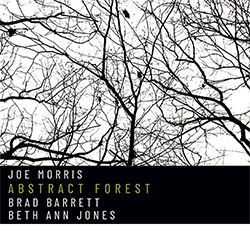

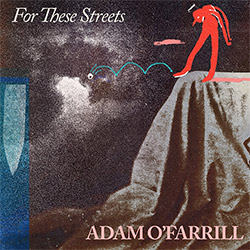
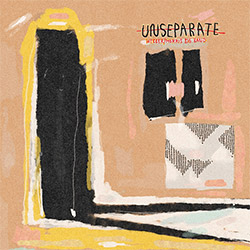
![Schulze, Phillip (w/ Anthony Braxton / Christian Jendreiko / Andrew Raffo Dewar / Detlef Weinrich): Ambassador Duos [DOUBLE VINYL + CD]](https://www.teuthida.com/productImages/misc4/36733.jpg)





![A Magic Whistle: The Solar Cell [VINYL]](https://www.teuthida.com/productImages/misc4/36658.jpg)

![McGee, Hal: Columbus Expedition [Cassette w/ Download]](https://www.teuthida.com/productImages/misc4/36650.jpg)


![Jaeger, Kassel: Fernweh [VINYL 2 LPs]](https://www.teuthida.com/productImages/misc4/36541.jpg)





![+DOG+: The Light Of Our Lives [2 CDs]](https://www.teuthida.com/productImages/misc4/36009.jpg)


![Eternities: Rides Again [CASSETTE]](https://www.teuthida.com/productImages/misc4/36247.jpg)

![Lopez, Francisco: Untitled (2021-2022) [2 CDs]](https://www.teuthida.com/productImages/misc4/36438.jpg)






![Money : Money 2 [2 CDs]](https://www.teuthida.com/productImages/misc4/35894.jpg)



![Musicworks Magazine: #151 Summer 25 [MAGAZINE + CD]](https://www.teuthida.com/productImages/misc4/36559.jpg)

![Brown, Dan / Dan Reynolds: Live At The Grange Hall [unauthorized][CASSETTE]](https://www.teuthida.com/productImages/misc4/36245.jpg)








![Palestine, Charlemagne / Seppe Gebruers: Beyondddddd The Notessssss [VINYL]](https://www.teuthida.com/productImages/misc4/36206.jpg)
![Palestine, Charlemagne / Seppe Gebruers: Beyondddddd The Notessssss [NEON GREEN VINYL]](https://www.teuthida.com/productImages/misc4/36207.jpg)

![Laubrock, Ingrid: Purposing The Air [2 CDs]](https://www.teuthida.com/productImages/misc4/35639.jpg)

![Yoko, Ono / The Great Learning Orchestra: Selected Recordings From Grapefruit [2 CDs]](https://www.teuthida.com/productImages/misc4/35841.jpg)






![Koenjihyakkei: Live at Club Goodman [2 CDs]](https://www.teuthida.com/productImages/misc4/36111.jpg)

![Sorry For Laughing (G. Whitlow / M. Bates / Dave-Id / E. Ka-Spel): Rain Flowers [2 CDS]](https://www.teuthida.com/productImages/misc4/35985.jpg)

![Rolando, Tommaso / Andy Moor : Biscotti [CASSETTE w/ DOWNLOADS]](https://www.teuthida.com/productImages/misc4/36106.jpg)


![Electric Bird Noise / Derek Roddy: 8-10-22 [CD EP]](https://www.teuthida.com/productImages/misc4/35970.jpg)








![Elephant9 : Mythical River [VINYL]](https://www.teuthida.com/productImages/misc4/34624.jpg)



![Elephant9 with Terje Rypdal: Catching Fire [VINYL 2 LPs]](https://www.teuthida.com/productImages/misc4/35355.jpg)
![Deerlady (Obomsawin, Mali / Magdalena Abrego): Greatest Hits [VINYL]](https://www.teuthida.com/productImages/misc4/34876.jpg)





![Coley, Byron: Dating Tips for Touring Bands [VINYL]](https://www.teuthida.com/productImages/misc4/17906.jpg)

![Lost Kisses: My Life is Sad & Funny [DVD]](https://www.teuthida.com/productImages/misc4/lostKissesDVD.jpg)